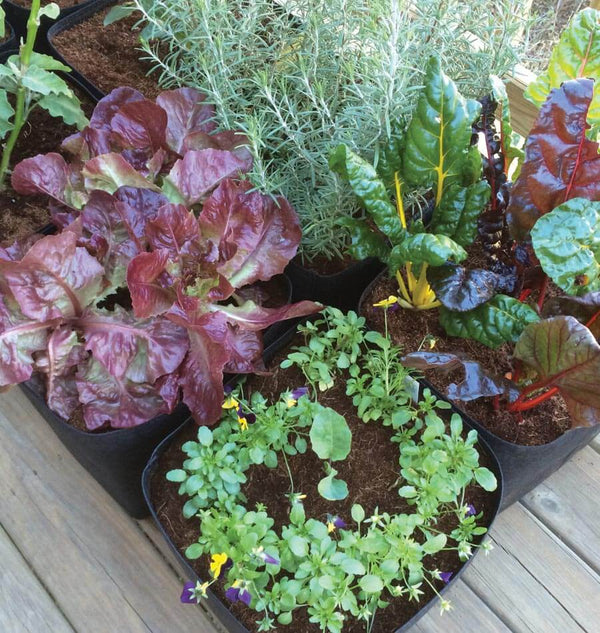Support Food Banks Canada with every dollar spent — 15% sales donated from Black Friday to Cyber Monday.
Time remaining:
Time remaining:

CSAs represent one of the ways that small organic farmers are changing the way we think about food, the way we access food, and how we, as consumers, participate with food production. CSA stands for Community-Supported Agriculture, and we’ve talked...
Continue ReadingIn nearly any gardening situation, we have the opportunity to mentor — and to be mentored. Growing food organically is a life-long learning curve. Newbie gardeners sometimes feel shy about asking questions, but this is the way to learn. Master...
Continue ReadingFood miles measure the literal distance in mileage between the producer and the consumer. They’re used to demonstrate the relative carbon footprints of conventionally farmed and imported groceries. This isn’t an effort to make consumers feel guilty. It’s about better...
Continue ReadingWest Coast Seeds is a proud supporter of the amazing organization, Growing Chefs. These “Chefs for Children’s Urban Agriculture” bring food into the urban classroom in the form of raw ingredients that are completely unfamiliar to the students. Their mission...
Continue ReadingIf you ever find yourself tempted to purchase kale from a supermarket, you really ought to try growing it. By its nature, kale is one of the easiest, hardiest, and most productive of all crops. It doesn’t need warm soil...
Continue ReadingAs we continue this Twenty-one Days of Green, planting trees seemed like an obvious choice. There are several fruit trees already growing on the farm at West Coast Seeds, so the idea came to expand the orchard area and expand...
Continue ReadingWith just eight more days left to Earth Day, we thought it would be good to list some of the many Earth Day events planned for next weekend. There are some big events in the city, and lots of local...
Continue ReadingOne of the amazing opportunities facing all gardeners and farmers is planting for wildlife — or, at least, growing food with biodiversity in mind. Organic gardeners understand that soil health is inherently dependent on robust biodiversity in the soil. Earthworms,...
Continue ReadingBack on Day 2 of our Twenty-one Days of Green, we talked about planting chives. We chose chives because they have to be among the very simplest of all herbs to grow from seed. They are extremely useful in the...
Continue ReadingGrass is used to fill in an awful lot of public spaces. We think of it as the automatic response to revitalizing just about any building or construction site, and since grasses are so darn tough, they seem to thrive...
Continue ReadingOkay – now for the fun stuff. Seed balls (sometimes called seed bombs), are simple balls of clay and soil that contain seeds. They can be placed or tossed into their growing spot, and the clay/soil mix provides the seeds...
Continue ReadingWe love the Queen of Green. Since 2009, environmentalist Lindsay Coulter has been blogging as David Suzuki’s Queen of Green on the website of the David Suzuki Foundation. If you want to take practical steps to reduce your carbon footprint,...
Continue ReadingAt West Coast Seeds we are huge fans of school gardens. Nothing beats seeing a class of happy, engaged kids learning about how soil works, and how to grow food from seed. The match seems so natural, and yet school...
Continue ReadingIt’s pronounced “zee-re-scape-ing.” And it’s a key concept for landscapers as we look to a future of water conservation and climate change. It’s worth mentioning again in this series of Twenty-one Days of Green leading up to Earth Day, because...
Continue ReadingFor the 21 days leading up to Earth Day, we are asking you to Commit to Grow with us. We appreciate that some of you might not even have outdoor gardening space, so today we’re going to talk about Sprouts!...
Continue ReadingIn this installment of Commit to Grow for Earth Day, we take the chance to explain why we choose to maintain our status as certified organic handlers of seeds. What does it mean to be certified organic? Organic certification has...
Continue ReadingWhile recreational field turf has its uses, most urban and suburban lawn leaves the Earth with a net loss. Space that could be used for growing food or feeding pollinators is dedicated instead to demanding, non-native grasses. Lawn grass is...
Continue ReadingWe continue our Twenty-One Days of Green with a look at an amazing community group. One of our favourite of all gardening organizations is Plant a Row Grow a Row. Quite simply, they encourage gardeners to plant one extra row...
Continue ReadingThe theme of this Twenty-one Days of Green campaign is to encourage everyone to Commit to Grow just one item that might otherwise be purchased at a grocery store. We love using chives as a place to start. To produce...
Continue Reading